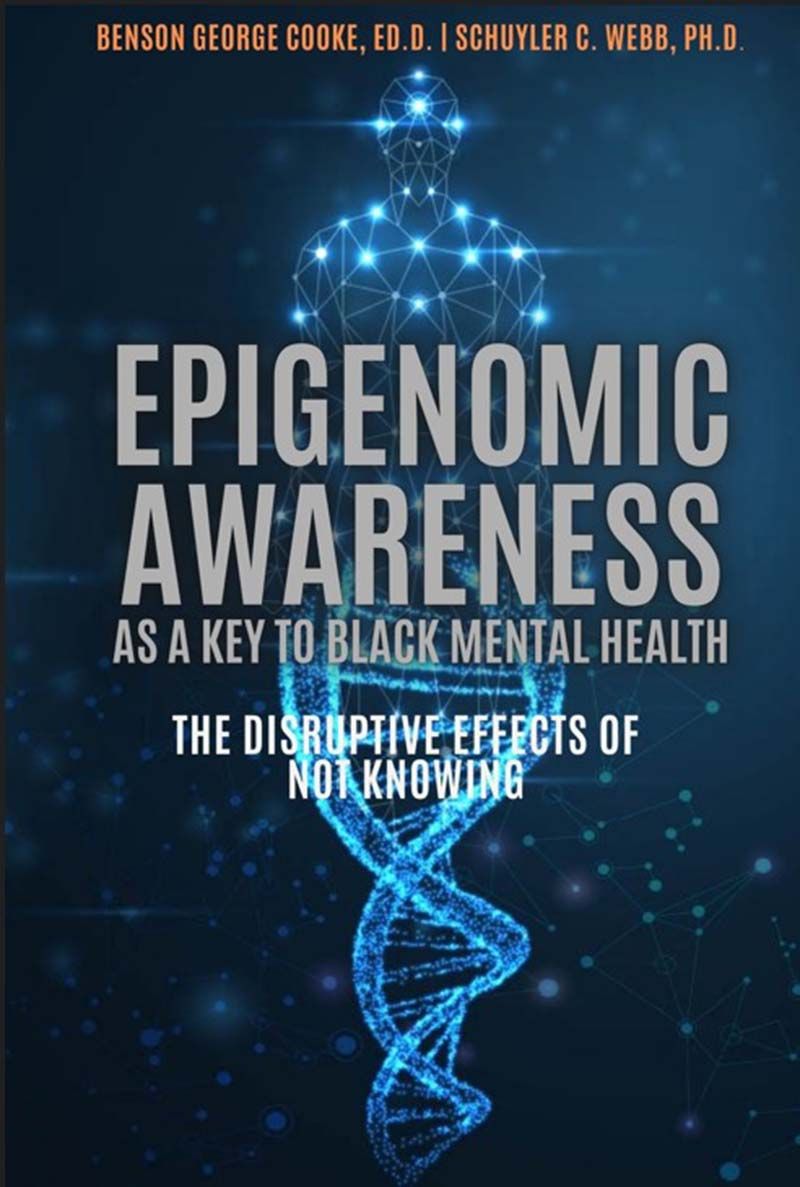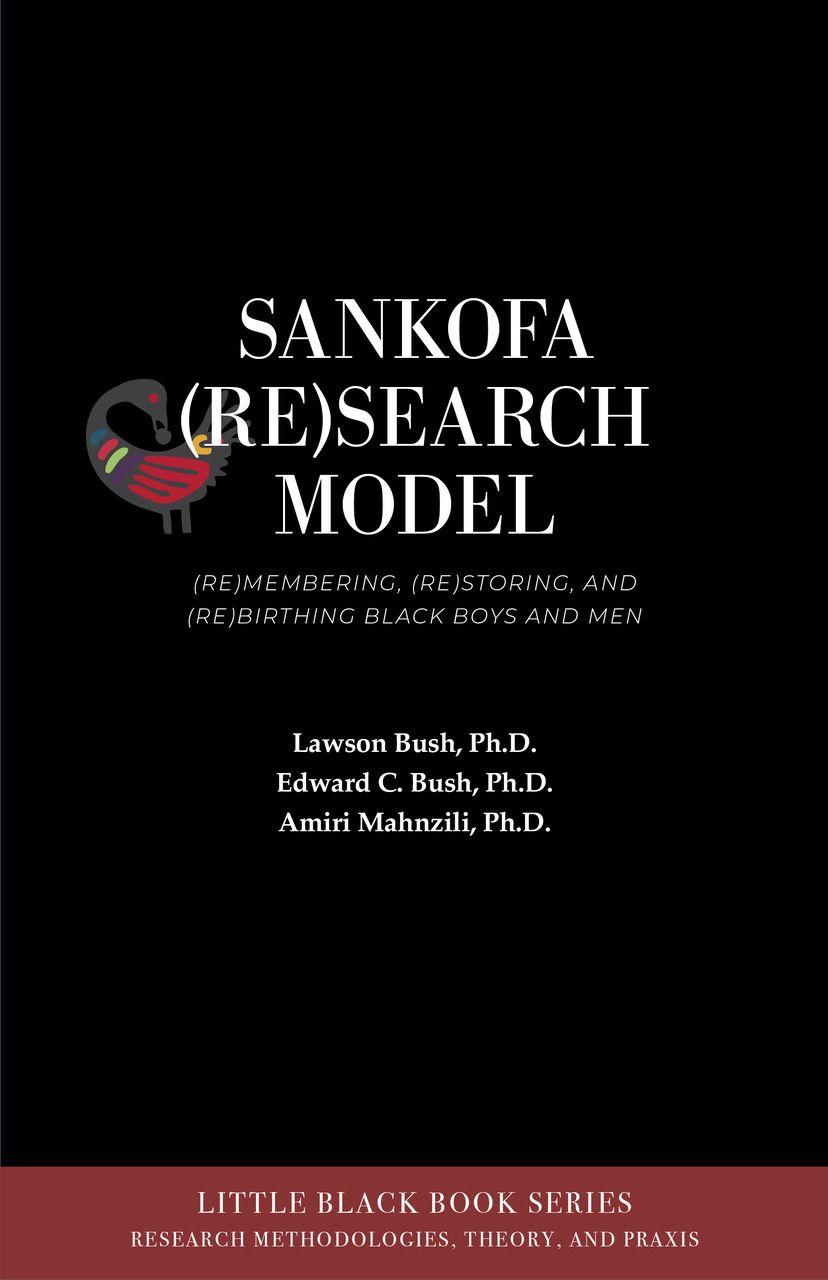
85.00
-
ISBN – Paperback: 978-1-942774-32-7
-
ISBN – eBook: 978-1-942774-33-4
-
ISBN – Hardcover: Not Available
-
Publish Date: April 2025
-
Book Pages: 418
-
-
Download TI Sheet
Epigenomic Awareness as a Key to Black Mental Health: The Disruptive Effects of Not Knowing
Description
This book, Epigenomic Awareness as a Key to Black Mental Health: The Disruptive Effects of Not Knowing, explores how a lack of awareness of epigenomics negatively impacts the mental health of the Black community. It explores how external factors like diet, toxins, anti-Black racism, and discrimination impact gene expression and overall well-being. The book explores the intricate relationship between environmental epigenomic signals and mental well-being and examines how these elements combine to influence an individual’s overall health.
Drs. Cooke and Webb explore the field of epigenetics, revealing how various factors contribute to significant health disparities. These disparities include higher rates of obesity, heart disease, hypertension, and diabetes. The authors examine how environmental factors like stress, diet, and exercise can modify epigenetic alterations, and potentially reverse them by highlighting the biological mechanisms behind these changes. The text explores how DNA methylation and histone modification — microRNA processes — impact gene expression.
Many mental health providers find it challenging to fully understand the complexities and significant impacts of transgenerational inheritance. This work aims to provide scholars, researchers, and healthcare practitioners with a deeper understanding of the experiences of people of color, specifically Black people. It encourages the exploration of intertextual connections and the identification of knowledge gaps in existing literature.
Culturally competent healthcare providers are essential to delivering effective mental health care to diverse populations and addressing disparities. Finally, the book proposes recommendations to mitigate the risks of epigenetic consequences and pathways to optimal Black mental health.
Drs. Cooke and Webb offer us a brilliant and insightful physical and metaphorical imaging of the metaphysical process of transgenerational and ancestral communication. This provocative discussion of biogenetic transmission of information provides us a three-dimensional picture of an extrasensory process of transmitting lived experience to the yet unborn. Epigenetics is a key to understanding the incarnation of ancestral presence and permanence.
~ Na’im Akbar, PhD
Clinical Psychologist
Research Associate in Clinical Psychology (Retired)
Florida State University
Former President of the Association of Black Psychologists (ABPsi)
The generational history of racism and oppression is often overlooked when considering its lasting effects on a people. Drs. Cooke and Webb address this important issue by providing the research and practitioner community with valuable insights into the significance of epigenomics as a critical key to understanding the enduring influence of historical and generational health, wellness, and trauma. Specifically, the esteemed authors highlight the lasting impact of slavery, the Middle Passage, and the legacy of the slave institution and postslavery oppression. In an engaging manner, Drs. Cooke and Webb offer solutions to address the history of systemic racism and generational trauma, emphasizing culturally and contextually mitigating pathways to healing and wellness.
~ Sean T. Coleman, PhD
Research Psychologist
Associate Dean, College of Education
Bowie State University
This groundbreaking work sheds light on how “not knowing” one’s genetic and epigenetic background can intensify mental health issues and perpetuate cycles of trauma. The authors offer actionable insights for mental health practitioners, educators, and community leaders, advocating for educational initiatives that incorporate epigenetic principles and culturally sensitive approaches that respect and address the unique experiences of the Black community. Beyond its academic rigor, the book emanates a sense of hope. The authors share inspiring case studies of individuals and communities that have embraced epigenetic knowledge, demonstrating how this awareness can lead to transformative healing experiences. Their message is clear: Comprehending the biological foundations of mental health can empower individuals to reclaim their narratives and advocate for their well-being. Overall, Epigenetic Awareness as Key to Black Mental Health is an essential contribution to the fields of psychology, counseling, genetics, and social justice. It challenges readers to reconsider how biology and environment intersect in shaping mental health outcomes while providing a compassionate road map for healing. This book is a must-read for anyone seeking to understand the complexities of mental health, especially within marginalized communities.
~ Nathalie Mizelle, PhD
Professor of Counseling
Chair for the Division of Education, Health, and Social Work
College of Arts and Sciences
University of the District of Columbia
The late psychiatrist Dr. Carl Bell studied, wrote, and treated the mental health ramifications of violence in the Black community of Chicago. Epigenomics has opened a window to understanding the concept of historical and generational trauma. Now, the one-on-one violence of Black youth against each other is better understood. They carry the trauma of slavery, Jim Crow, and the de facto segregation of the North: redlined, substandard, overcrowded, roach- and rat-infested housing; the minimalist curriculum of the ghetto schools; wine and liquor stores that create food deserts; and bleak employment opportunities where diversity, equity, and inclusion are outlawed. This seminal work shines a light on corrective behaviors and institutional policies that can impact gene expression in ways that address systemic racism and transgenerational trauma.
~ Edwin J. Nichols, PhD
Clinical/Industrial Psychologist
Director of Nichols and Associates, Inc.
An Applied Behavior Science Firm
Drs. Cooke and Webb have encapsulated critical and poignant points that shed light on the epigenetic alterations peculiar to experiences across generations among melanin-dominant humans. I applaud their approach, scholarship, and the depth of clarity demonstrated in collaborative research that speaks to the relevance of epigenomics in cross-disciplinary language on the impact of the system of racism and White supremacy—as an endemic viral stressor that undermines positive neuroplasticity linked to multigenerational cellular stressors inherent in navigating such a toxic environment. This treatise introduces proof that genetic expressions can be optimized, muted or nearly nullified, and detected throughout one’s family lineage. Kudos!
~ Niyana KoKo Rasayon, BSc, MA., PhD, LCPP
Behavioral Neuroscientist
Associate Professor







